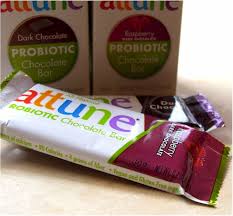Blue Diamond is one of scores of firms targeted in a recent flurry of class action lawsuits alleging that the only reason they use the term ‘evaporated cane juice’ on labels is to conceal the fact that they are adding sugar to their products.
Many of these cases also cite FDA draft guidance from 2009 urging firms not to use the term ECJ on the grounds that it is false and misleading and that by using it they are violating food labeling regulations requiring ingredients to be described by their common or usual names.
However, everything changed in March when the FDA said it might revise its draft guidance and issue a final version, prompting several judges handling similar cases to dismiss or stay them based on the doctrine of primary jurisdiction (ie - that this is a matter for the FDA, not the courts).
Judge certifies class of California consumers

However, in her May 23 order on an ECJ-related case against Blue Diamond, California judge Lucy Koh said plaintiff Chris Werdebaugh had “introduced sufficient evidence that he relied on Blue Diamond’s allegedly misleading label statements in making his purchases”.
Koh rejected Werdebaugh’s call to certify a nationwide class of consumers, but agreed to certify a class of California consumers who bought almond milk products from Blue Diamond from May 19, 2008 featuring the label statements ‘evaporated cane juice’ and/or ‘All Natural.’
Attorney: Until FDA issues definitive guidance on ECJ, confusion over the application of the primary jurisdiction doctrine will continue
Her decision has surprised legal experts given that several other ECJ-related cases have been dismissed or kicked into the long grass following the FDA’s recent intervention.

Commenting on Koh’s order in the National Law Review, Robin A. Achen, an associate in the Business Trials Practice Group in LA office of law firm Sheppard, Mullin, Richter & Hampton LLP, said: “Until the FDA issues definitive guidance on this issue, it seems that confusion over the application of the primary jurisdiction doctrine will continue.”
In a blog post, Ronald Rothstein, a partner at the Chicago office of law firm Winston & Strawn, added: “The Blue Diamond Growers class certification decision is somewhat surprising against this backdrop [or other ECJ-related cases being dismissed or stayed].”
He added: “It will be interesting to see whether Judge Koh reconsiders her earlier primary jurisdiction ruling in light of the March 5 notice and subsequent decisions.”
Judge Koh’s decision is ‘somewhat surprising’
California plaintiff Chris Werdebaugh filed his original complaint against Blue Diamond on May 29, 2012, accusing it of deceiving consumers by using the term ‘evaporated cane juice’ on packs of shelf-stable Chocolate Almond Breeze almond milk and by labeling products containing the acidity regulator potassium citrate ‘all-natural’.
The case is Chris Werdebaugh et al. v. Blue Diamond Growers, 5:12-cv-02724 filed in the US district court in the northern district of California, San Jose division. Werdebaugh is represented by Ben F. Pierce Gore of Pratt & Associates.
A spokesperson for Blue Diamond said the firm "does not comment on legal matters pertaining to its business".
Click on the link below to read more on ECJ:
